HOR AL BOSH, Iraq -- Everyday a select group of Soldiers from the 1st Brigade Special Troops "Centurion" Battalion head out in their mine resistant vehicles, hitting the streets near Camp Taji, Iraq to clear routes of improvised explosive devices within the 1st "Ironhorse" Brigade Combat Team, 1st Cavalry Division's area of operations.
These Soldiers come from all kinds of different backgrounds and different military occupational specialties (MOS)-everything from cooks to combat engineers, truck drivers to satellite communications specialists as well as medics and are from states which are geographically diverse to include places like California, Michigan, Pennsylvania and Missouri.
Like other Soldiers, this band of brothers said they have their own war stories ranging from the time that a sergeant jumped out of their mine resistant vehicle and began chasing a man who emplaced an IED to the many explosions and close calls they have survived day in and day out in the combat zone.
Yet each one of them said they have become as close as family, while also becoming very proficient at their jobs to keep the roads safe. This was no less evident than a recent mission in which they worked to clear a hardly-ever traveled road near here Nov. 2.
Prior to the mission, the 1st BSTB troopers linked up with disposal personnel and Soldiers from the 2nd Battalion, 8th Cavalry Regiment and then they rolled out the gates of Camp Taji toward their destination.
Over the past year during Operation Iraqi Freedom rotation 06-08, the 1st BSTB troopers have found more than 230 IEDS, more than any other unit performing similar missions in Multi-National Division-Baghdad, according to Sacremento, Calif. native Sgt. Vincent Juarez of the 1st BSTB who spends his days riding the roads in a Buffalo mine resistant vehicle.
"In our encounters with IEDs, we've had a 70 percent success rate in finding more IEDs than have hit vehicles in the brigade, and there's really no specific MOS for what we do," said Juarez, a truck driver by trade, as he rode out on the day's mission to clear a route near Hor Al Bosh.
"All of the Soldiers on this particular mission are very seasoned and have experienced just about everything," said Sgt. Andy Cochran, a satellite communications technician, who hails from Lakeland, Fla. "We face a very adaptive, complex enemy so we have to depend upon our eyes and our ears and our experience in order to decipher the good from the bad, knowing what to look for and stopping to check as soon as we see anything suspicious."
As they rolled down the road in their Buffalo in a slow, deliberate search scanning with binoculars for anything that could possibly be an IED, Cochran said each mission is performed with their fellow Soldiers in mind who will travel the roads after them.
"It's very gratifying and positively humbling to know you're helping the Soldiers who will be traveling this road," said Cochran.
"I have great feelings about what I'm doing here," said Juarez. "You know, it's crazy too, but I'm not so much worried about getting hurt myself but I'm more concerned about the guys in the humvees who come behind us. My worry is seeing one of them hurt. So when we come out here, I pray to God that we don't miss anything."
Once they find and positively identify an IED, they call in for disposal personnel to retrieve and destroy the found munitions and their missions can last many, many hours.
With working long hours in an extremely stressful job, the Soldiers said they find many different ways to cope with the stress after work.
"Some of the things we do include playing video games, going to the gym, taking part in poker games, and watching movies. A lot of the guys do correspondence courses," said Saginaw, Mich. native Pfc. Daniel Miller, a 1st BSTB medic who is part of the Buffalo's crew.
"No one is more supportive than my wife so I usually call her," said the 21-year-old medic. "I try not to tell her too much about what happens here, she knows what I do and knows if I'm having a bad day, but she understands and deals with it much better now than she did earlier in the deployment."
Before their 15-month deployment ends, one of the main goals of these IED seekers will be to ensure that the unit which takes over for them in about two months is prepared to "carry the torch."
"When we do change over, we're going to make sure we do it right, so we're not wasting their time and keep them extremely focused on the routes here," said Juarez. "There are a lot of things that we know now that we didn't know in the beginning that we can pass on to them, things that if we could go back we would've been able to have found even more IEDs."
Each of the Soldiers who ride the Buffalo said they have their own take on what their job means to them.
"I'd much rather be the hunter than the hunted," said Juarez. "It's given me a much different outlook on the military. I think I'm good at what I do in a transportation unit, but since I've been out here with (1st BSTB) and doing something related to a combat arms MOS, I really feel that I should have been in a combat MOS all along."
"I think that's part of the reason I'm going to reenlist for the Air Assault option," added Juarez, who has a nine month old son and a fiancAfA back in the states.
Spc. Mike Bittle, a combat engineer who hails from Cabool, Mo. echoed many of Juarez's sentiments.
"There's nothing I'd rather be doing," said Bittle. "I like the idea of saving the lives of my fellow Soldiers and helping innocent Iraqi citizens, it gives you a true sense of accomplishment. There have been times when I've wanted to quit, because the (brigade) had some Soldiers who have died and I felt like shouldn't be alive because of all the IED explosions I've lived through."
"I understand how much it hurts to lose them, but we have an important job to do and I have no problem staying where I am so no more Soldiers have to die," added Bittle. "I love what I'm doing and I like the mission."
But since recent reconciliation efforts, the security situation within the Ironhorse Brigade's area is improving, said Bittle.
"For a while there we were finding one to two IEDs per day, but now we hardly ever find one unless we're going down a road we haven't been on in a while," said Bittle. "But you can definitely see a big difference. You can see that the Iraqi Army and the Iraqi security volunteers are getting much more involved and that they care about what they're doing, and they're helping us improve security to the point that we are seeing fewer IEDs and IED attacks."
Toward the end of the day's mission, after many hours, the team hit paydirt.
"See that, that's what it's all about," said Cochran pointing toward the window of the Buffalo to an IED in the road that they had uncovered.
"Any day we can come back and we've found something, that's a good day," said Bittle.
Shortly after the discovery of the round, disposal personnel moved in to retrieve it, and the IED hunters in the Buffalo returned to Camp Taji.
Once back on the base camp, the Centurions were already getting fuel for their next mission the following day.
"When I first got here, I road in humvees, but after riding in this thing I wouldn't want to ride in anything else," said Miller pointing to the Buffalo. "There are few vehicles that can take a blast like this one can."
The Soldiers said they all agree that they look forward to an Iraq in the not-to-distant future where the Buffalo freely roam and the IEDs are extinct.
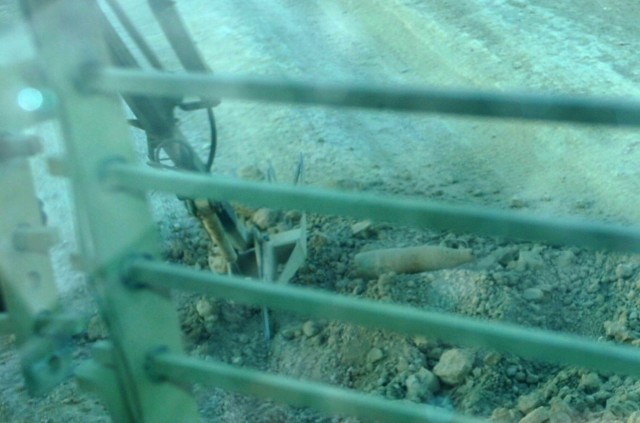
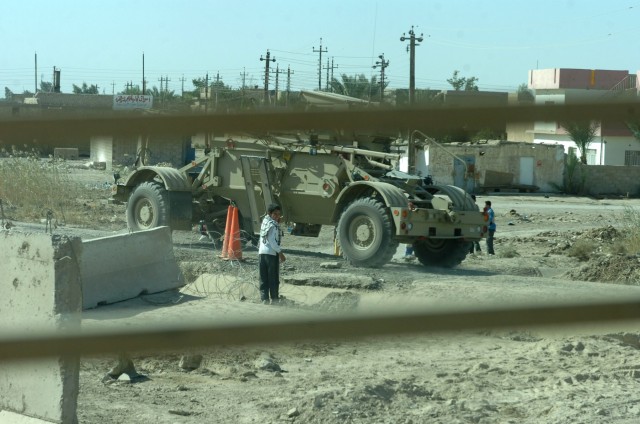
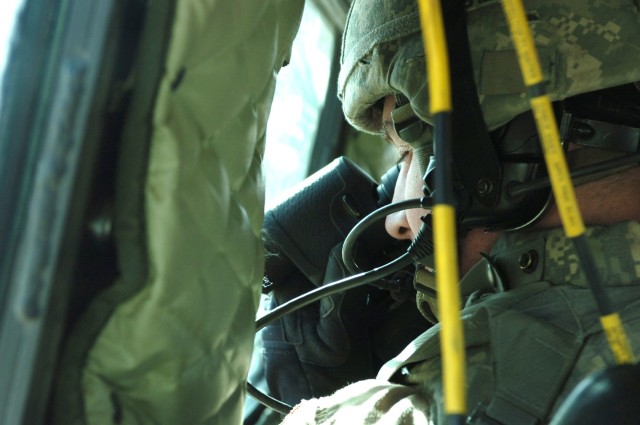
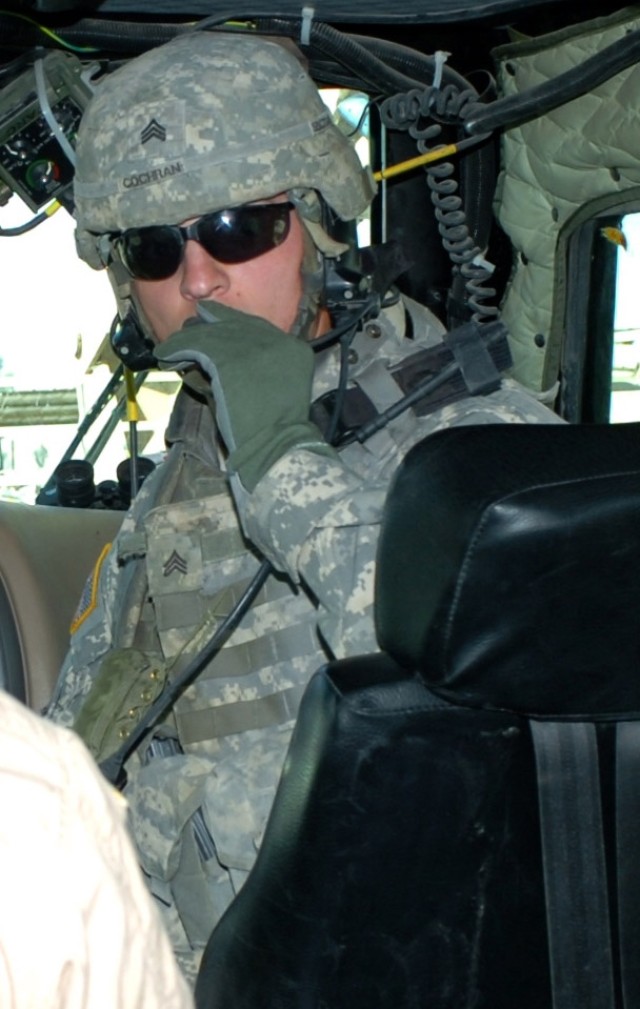
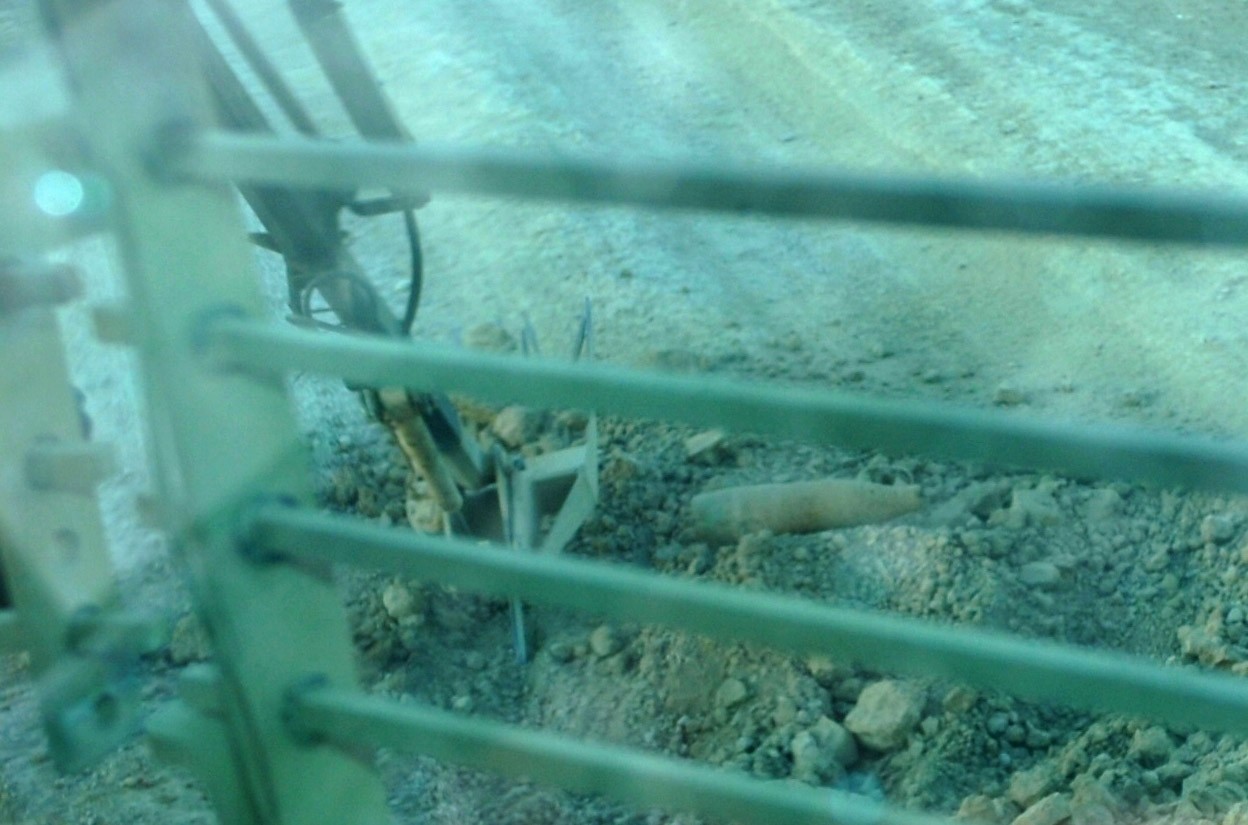
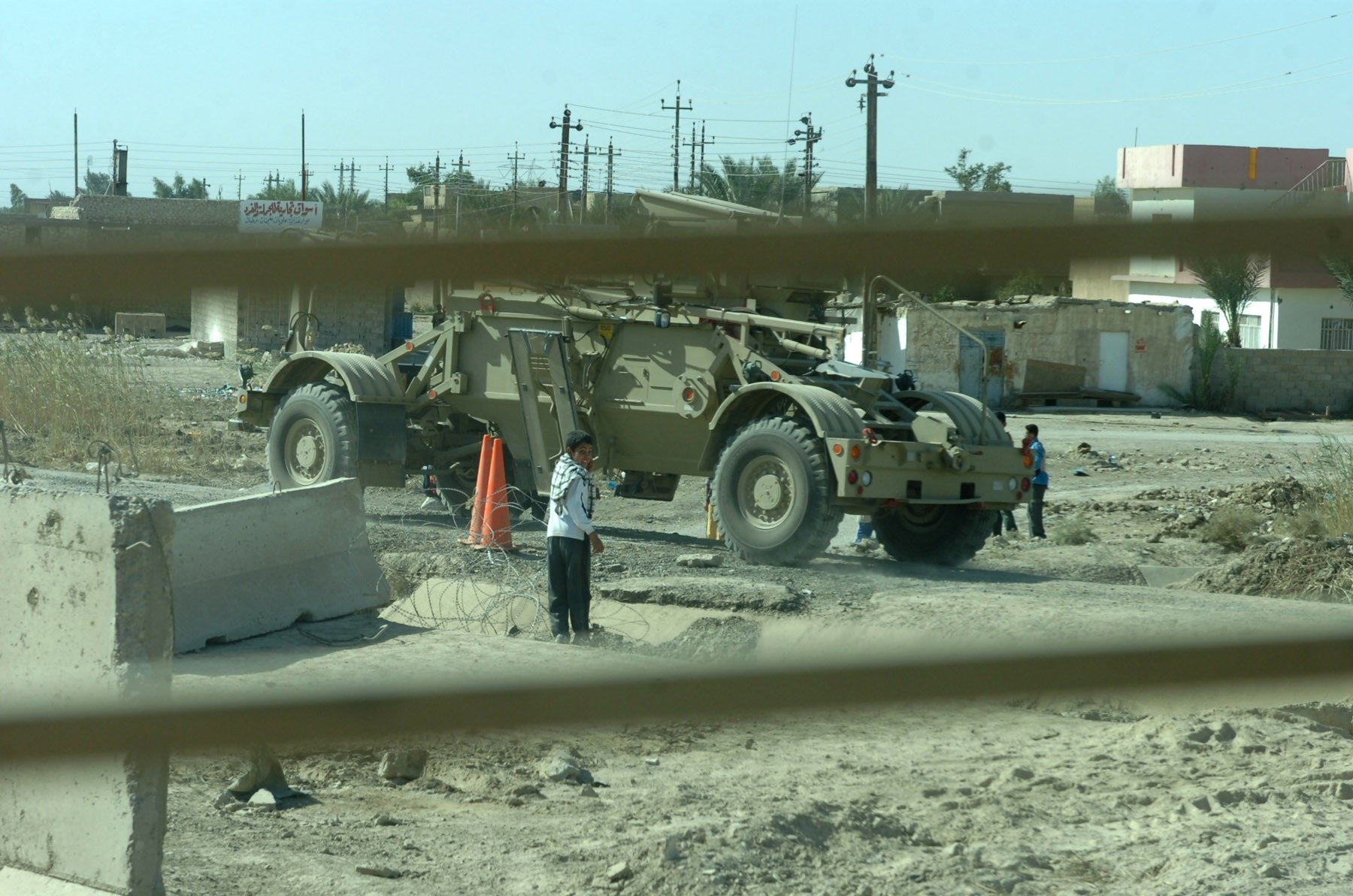
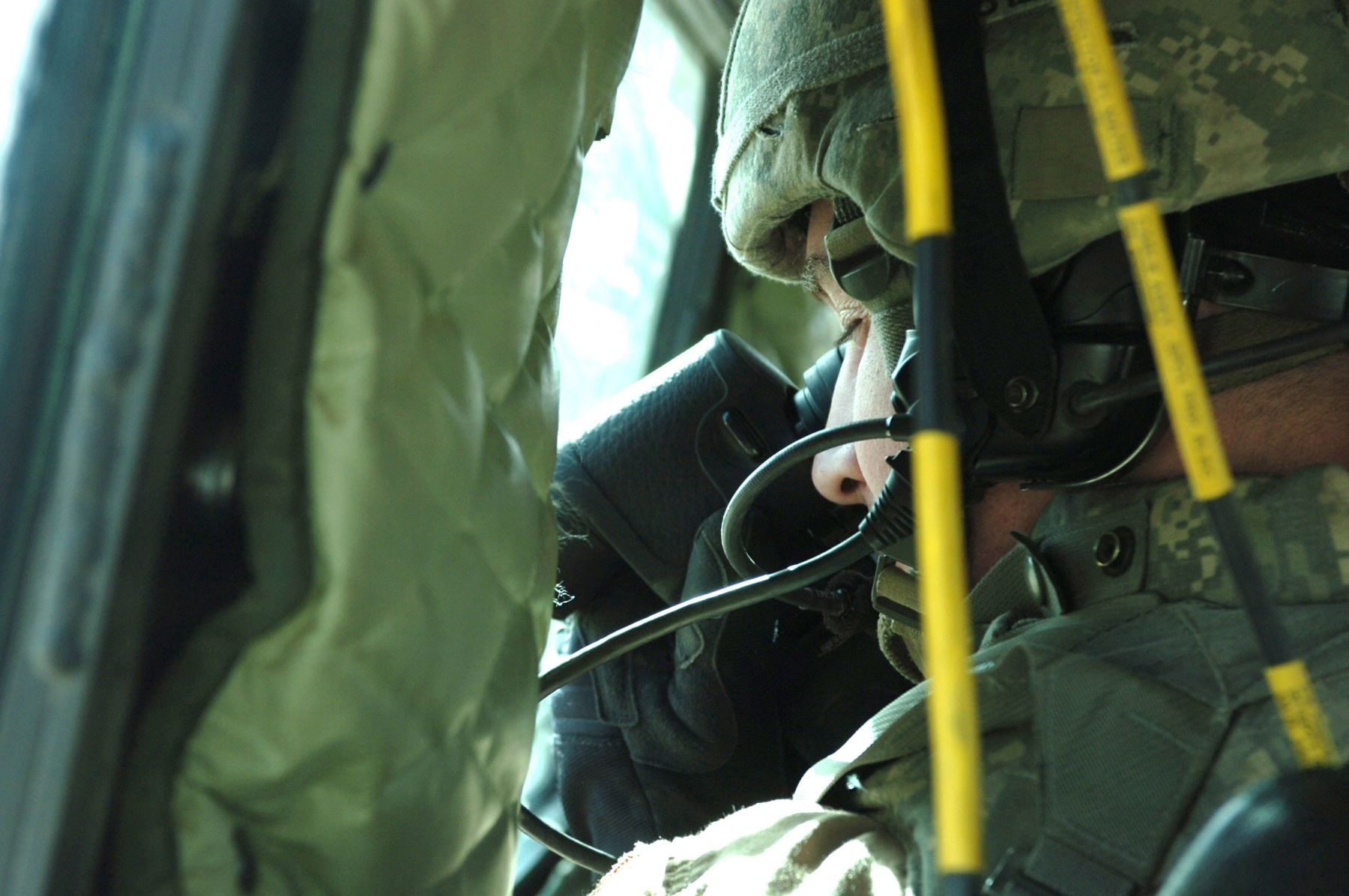
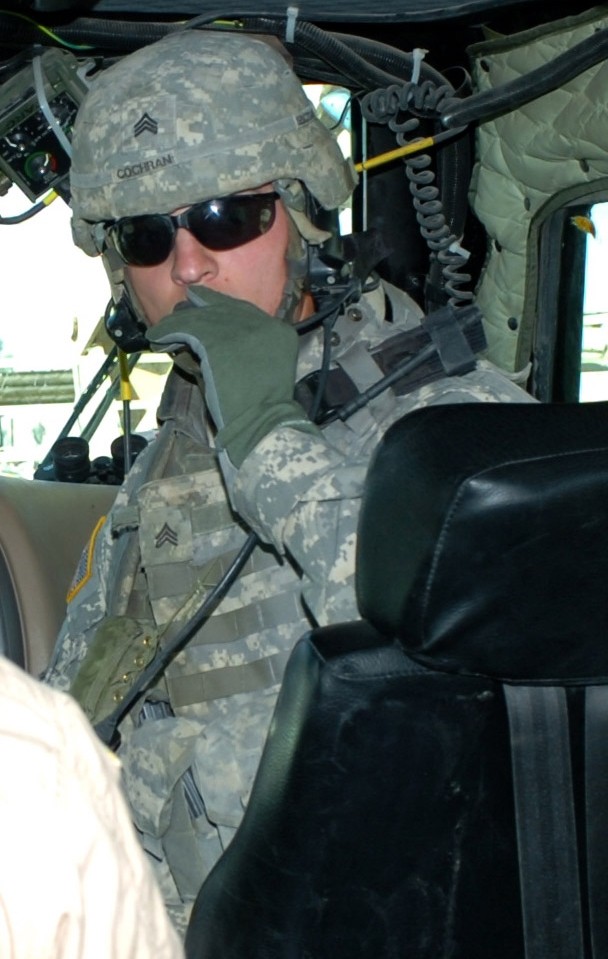
Social Sharing